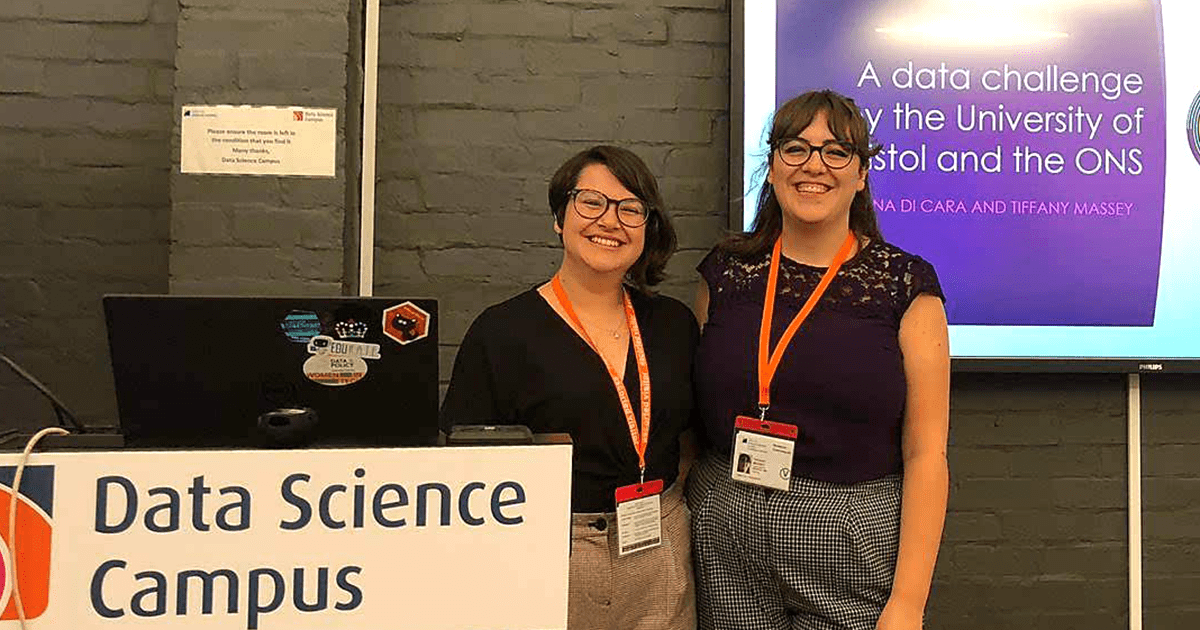
Nina, a PGR in the Bristol Medical School, reflects on what she learned from entering the competition — and what it meant to win it.
The challenge…
Earlier this year, the Jean Golding Institute (the University’s centre for data-intensive research) and the Office for National Statistics announced a joint ‘Data Challenge’, inviting teams to find out if loneliness was associated with movement for the purpose of education using ONS open data and their newly created ‘Loneliness Index’.
The entry had to lay out the analysis you had used in the form of a blog post. My PhD research focuses on applying data science methods to data about mental health, so I was keen to get involved!
Planning our entry
Following the initial information session, my friend Tiff and I decided to enter — though with her living and working in London and me living in Wales, we knew it would be a bit of a challenge to find opportunities to actually do the work.
In the end, we both worked remotely to decide on which datasets we would use and how to analyse them, and then came together for a weekend to do the actual analysis we had planned.
After a couple of late nights working on our entry, we were pretty pleased with what we’d achieved in the time that we had. We both learned a lot about working with government data, and both of us picked up a lot of R tips and tricks from each other; Tiff knows a lot about data manipulation and interactive data visualisations, whereas I knew more about the statistical modelling side. What I learned from Tiff also ended up helping me out with some data dilemmas I had been having in my research.
What happened next?
Finding out we had won was very exciting for us both — we had had a lot of fun working together on our entry (as someone has since said to me, only two mathematicians would call a weekend of data analysis ‘fun’), so were really pleased that the JGI and ONS liked what we came up with.
Later, we were told that they particularly liked the novel metrics we had created with the data, and that we had presented the results as reader-friendly for a non-expert audience. The outputs from the competition have been passed on to the team in the ONS working on this project, so hopefully some of our ideas will be taken forwards.
Of course, the prize money was very exciting for us both, but we also got the opportunity to visit the ONS Data Science Campus for the day and give a presentation about our results (I was very thankful for all the presentation practice I’ve been making myself do this year). On our visit, we also met with staff working at the Data Science Campus and got to hear about some of the cool projects they are working on, with a view to using data science for public good.
Would we do it again?
Definitely! I would really recommend getting involved next time if it’s something you are considering — sometimes it’s just nice to have a project outside of your PhD research to give your brain a chance to work on a new problem for a while, and I think that’s one of the main benefits I personally got from taking part.
If you’re interested in seeing our entry, it’s currently on our GitHub page and is also due to be published on the ONS website shortly.
Find out more about Nina’s research on her personal blog — and by following her on Twitter.

